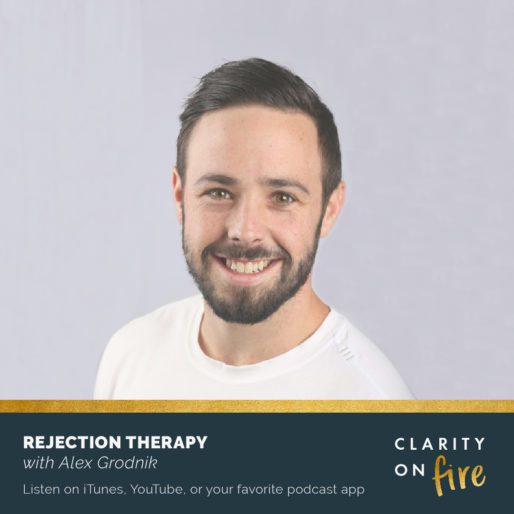Click the play button below, or subscribe and listen through our podcast on iTunes, Stitcher, Google Play, or Spotify.
Podcast: Play in new window | Download
A few weeks ago, Kristen and I were out to lunch, and we couldn’t help but overhear the conversation happening between the people at the next table.
The man said to the woman, “If Millennials had helicopter parents, then Gen Z has snowplow parents — they’re constantly clearing any obstacles or difficulties in their kids’ path.”
We were intrigued and, quite honestly, it’s hard to deny the truth of that. We can all think of plenty of examples to prove that point.
What baffled our unwitting lunch companions, and us too, is how shortsighted “snowplow parenting” is.
When a kid reaches adulthood and they’ve NEVER had to struggle, fail, be rejected, or challenge themselves, then they are completely unequipped for life in the real world. They become incredibly fearful, anxious, and overwhelmed, to say the least.
Failure, struggle, and rejection help people grow and become healthy, well-adjusted adults. But most of us are still afraid of those things, even if we’ve been through them before.
In this month’s interview with an expert, we talked to Alex Grodnik, host of the Moving Up podcast, about how to desensitize yourself to failure and rejection. He’s a living example of how quickly you can get over your fears!
We talked to Alex about:
- How he suppressed his innate entrepreneurial nature to pursue more “traditional” success with a high-profile job on Wall Street, and why that didn’t satisfy him at all.
- Why he quit that high-paying job, and why his friends from Wall Street are jealous of him, even though some of them make nearly $1,000,000 per year!
- How he’s been rejected at least 1,000 times since starting his own business, and why that hasn’t stopped him.
- Little ways you can strengthen your failure and rejection muscles, so that you’re more resilient and not as easily scared.
After you’ve listened, leave a comment below to let us know how Alex’s advice landed with you! And if you’ve got an opportunity to implement some “rejection therapy” in your life, we’d love to hear how you plan to do that.
MORE ABOUT ALEX
Alex is the co-founder of fintech startup Payclub, a free app that allows groups of friends to manage and budget money together. He’s also the host of the Moving Up podcast, where he interviews business leaders (like the co-founder of Venmo, and the founder of Facebook) about the struggles and successes they’ve encountered all the way. Alex got his MBA from UCLA Anderson. His background is in investment banking, working for JPMorgan and Houlihan Lokey, and then in the strategy group of a digital media company in Santa Monica.
Alex lives in LA with his wife, 9-month-old baby girl Elle and goldendoodle Smith. He grew up in Park City, Utah and loves to ski and golf.
You can follow him on Twitter @agrodnik and email him at [email protected].



I had an idea for an interview with an expert episode, what about interviewing a Bibliotherapist? It’s a therapist who prescribes books for you to read – I came across an article about it recently and it sounds so fascinating, most likely because I’m a Ravenclaw 😉 haha
Not sure how you find one or how common they are, but just thought I’d plant the idea!
Ooh that’s super cool! I’ve never heard of that. Sounds like some Googling is in order! And you’re right, it’s a very Ravenclaw thing to do, which obviously appeals to me and Kristen. 😉
As a teacher, I can attest to the trueness of this situation. Though with teaching high school, I get a lot of what I call “stealth-bomber” parents. They are no where to be found when you need them, but long after the poo has hit the fan, they attack and want it fixed- by me the teacher of course, and not their kid whose problem it really is. It’s an interesting phenomenon and the lack of problem solving skills, coping skills, and accountability that results becomes a crippling state of existence for them once they leave school. I continually hope that the pendulum begins to swing in the other direction so we can create successful and happy citizens.
Ugh, stealth-bomber parents sound like the WORST, but I can totally understand how that happens. It also just goes to show how important it is for grown people to take responsibility for healing their own crap, so that they are actually capable of teaching problem solving and resilience to younger people!